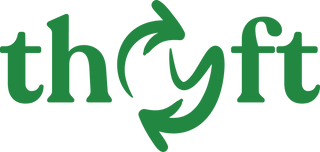Special Offer
Buy 3, Get Another Free On All Items Under S$10 Storewide
Discount applied automatically when you add them to your cart.

We will send you an email to reset your password.
The item you've got your eye on is secondhand. You probably already know that, but just in case!
The estimated retail price shown next to any listed item represents the first-hand prices we've seen elsewhere, or the estimated original retail price of a comparable item of the same quality, construction and material offered elsewhere in new condition.
Strategizing intangible assets for knowledge economy success.
If you’re navigating the modern knowledge-based business landscape, Sveiby's insights are pivotal. He translates the often nebulously defined territory of intellectual capital into concrete management principles. This book could be your roadmap to harnessing and leveraging the most valuable assets of your firm—experience, skills, and knowledge—in a way that’s measurable and meaningful.
The item you've got your eye on is secondhand. You probably already know that, but just in case!
The estimated retail price shown next to any listed item represents the first-hand prices we've seen elsewhere, or the estimated original retail price of a comparable item of the same quality, construction and material offered elsewhere in new condition.
This book may contain very minor cosmetic defects, but it is in pristine condition. There should be no yellowing, no foxing, no water damage, and no annotations of any kind on the cover and the pages. For paperbacks, there should not be any crease marks on the spine. This book is good as new — lucky you!
*Books may be missing bundle media (e.g. CD, e-book code), if included.
This book has been used, but it is still in a clean condition. There should be no foxing or annotations of any kind on the inner pages, but a sparse amount may be present on the cover, title pages, or outside edges of the book. There should be no water damage of any kind. For paperbacks, there may be light crease marks on the spine.
*Books may be missing bundle media (e.g. CD, e-book code), if included.
We do our best to ensure the quality of our books, but there is no escaping the wear and tear that comes with time. Slight foxing and some annotations may be present on the pages and the cover. There should be no water damage of any kind. For paperbacks, there may be several crease marks on the spine.
*Books may be missing bundle media (e.g. CD, e-book code), if included.
This is a well-read book, which means that the previous owner probably really enjoyed it! The cover and pages may include moderate foxing and annotations, but the text is not obscured and still readable. Moderate cosmetic defects and minor water damage may be present on the edges of the book. For paperbacks, there may be multiple crease marks on the spine.
*Books may be missing bundle media (e.g. CD, e-book code), if included.
Find out more about our process here.
Special Offer
Discount applied automatically when you add them to your cart.
Adding product to your cart
Strategizing intangible assets for knowledge economy success.
If you’re navigating the modern knowledge-based business landscape, Sveiby's insights are pivotal. He translates the often nebulously defined territory of intellectual capital into concrete management principles. This book could be your roadmap to harnessing and leveraging the most valuable assets of your firm—experience, skills, and knowledge—in a way that’s measurable and meaningful.
$14.90
$14.90
$12.90
$12.90
Regular price
$6.90
$3.90
43% off
Regular price
$6.90
$3.90
43% off
Regular price
$10.90
$6.90
37% off
Regular price
$10.90
$6.90
37% off
$20.90
$20.90
$27.90
$27.90
$9.90
$9.90
$12.90
$12.90
$8.90
$8.90
$8.90
$8.90
$18.90
$18.90
$10.90
$10.90
$33.90
$33.90
$8.90
$8.90
$15.90
$15.90
$8.90
$8.90
$13.90
$13.90
$11.90
$11.90
$20.90
$20.90
$10.90
$10.90
Enter our giveaways, keep up with our latest sales and events, and receive recommendations direct to your inbox. We'll only send the good stuff, promise!
By completing this form, you are signing up to receive our emails and can unsubscribe at any time.
